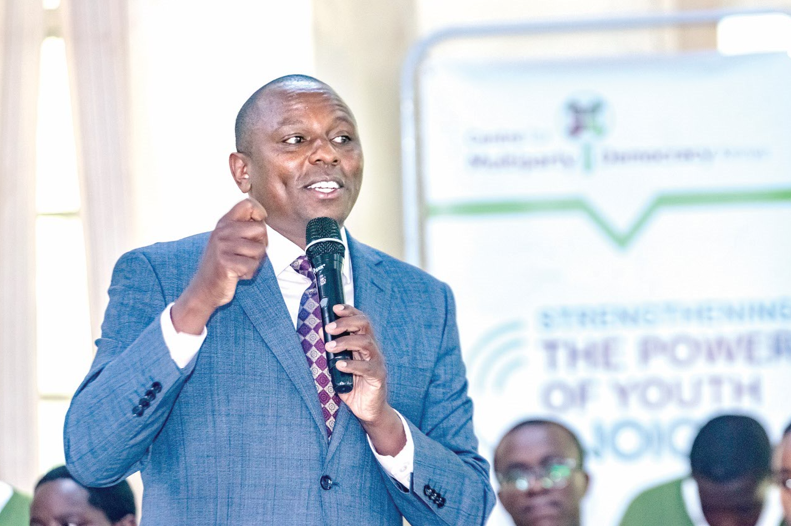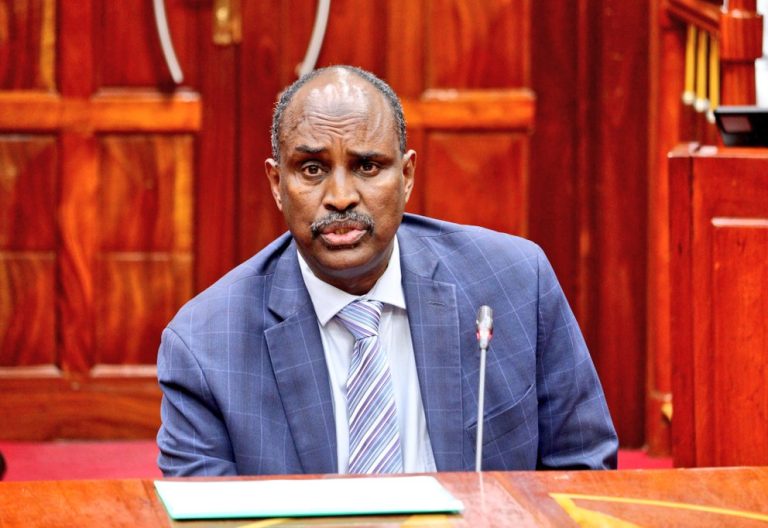Learners in private varsities to now enjoy State funding

Students wishing to pursue higher education will now have a free hand to join either public or private university of their choice and still enjoy state funding.
This is after the government abandoned plans to give Kenya University and Colleges Central Placement Service (KUCCPS) board the responsibility to place students in both public and private universities.
The government had last year stopped funding students who opted to join private universities after introducing a new university funding model. But now with the latest move, a student would have the ultimate choice to either join public or private university.
Last Thursday, Leader of Majority Kimani Ichung’wah withdrew the proposed amendments on the Universities Act of 2012.
National Assembly Speaker Moses Wetang’ula in a communication to Parliament, told members that Ichung’wah had written to him seeking consent to withdraw the proposed amendment.
Ichung’wah had proposed to make the changes in the Statute Law (Miscellaneous Amendments) Bill 2023, which is sponsored by the government, which is now in the Third Reading.
“I wish to notify the House that I have received a request from the Leader of Majority seeking my consent for withdrawal of the proposed amendment as contained in the bill,” Wetang’ula told members.
The Speaker added; “I have acceded to the request by the Leader of Majority to withdraw the provision as contained in the Bill.”
The Bill sought to amend section 56 (1) (a) of the Universities Act to provide that “the placement board shall be responsible for placing all students, rather than only government-sponsored students, in universities and colleges.”
“It would therefore be prudent to allow for the conclusion of these processes before determining the appropriate course of action,” Wetang’ula said.
Proposed amendment
In the letter to the Speaker, Ichung’wah states that various stakeholders “have raised concerns regarding the proposed amendment necessitating further consultations and engagement within the sector.”
The House’s Public Investments Committee on Education and Governance is currently considering a related matter on the funding of University education in the country.
Ichung’wah however said that the Education Committee of the National Assembly will now take up the matter.
The section which the government wanted to amend stated that the functions of the KUCCPS board shall be to co-ordinate the placement of the government sponsored students to universities and colleges.
The proposal was meant to allow KUCCPs the responsibility to coordinate the placement for the sake of standardisation and quality control of the courses offered and the qualification of students.
Giving KUCCPS board powers to place students in public and private universities, would have denied private universities the current capitation they are receiving from the government-sponsored students.
Therefore, removing the phrase “government-sponsored” from the law would have allowed KUCCPS board to only place students with the choice of which universities to join, a preserve of the students.
In the current set up, if a student chooses a private university as an institution of their choice, it means that public funds will not follow them and therefore, they will cater for their education expenses fully.
Private universities had faulted the government’s proposal to stop funding students in their institutions calling for fair distribution and funding of students.
The Kenya National Association of Private Universities Secretary-general Vincent Gaitho expressed concerns that only students enrolled in public universities are eligible for state scholarships.
Reacting after the new model was introduced, Dr Gaitho described the plan as discriminatory saying learners from poor backgrounds posted to private universities will be denied a chance to further their higher education.
Gaitho said the new funding model was punitive for learners in private universities.
“If the model is not challenged, it will mean the end of the road for the students from poor families studying in the private universities where they were placed by the Kenya Universities and Colleges Central Placement Service (KUCCPS),” said Gaitho.
The learners, he said, have been enjoying government scholarships and doing well in their studies and research.
Government-sponsored students were first admitted to private universities in 2016 when the state initiated a pilot programme targeting 10,000 learners to expand the university education in the country as spaces in public facilities were limited.
Average capitation
The programme started with an allocation of Sh2 billion with the first batch of 6,312 students receiving an average capitation of Sh70,000 before the amount was increased to Sh84,217 for the second batch that had 18,587 learners.
The private universities were then required to declare on their websites, the course they offer and how much they charge.
This was to allow the government to plan. The government-sponsored students to the private universities has since increased to over 80,000.
By the time of requesting for the withdrawal of the proposal, debate on the Bill had already concluded and it was set for the committee of the whole House stage- where the Bill is considered clause by clause.
This therefore means that the Omnibus Bill will proceed without making reference to the withdrawn provision and will be considered as though the withdrawn section was not part of the Bill.
State funding to both public and private universities is based on the Differential Unit Cost (DUC) model where the institutions are allocated budgets based on the number of undergraduate students they register for the state-funded regular programme and courses they choose.








